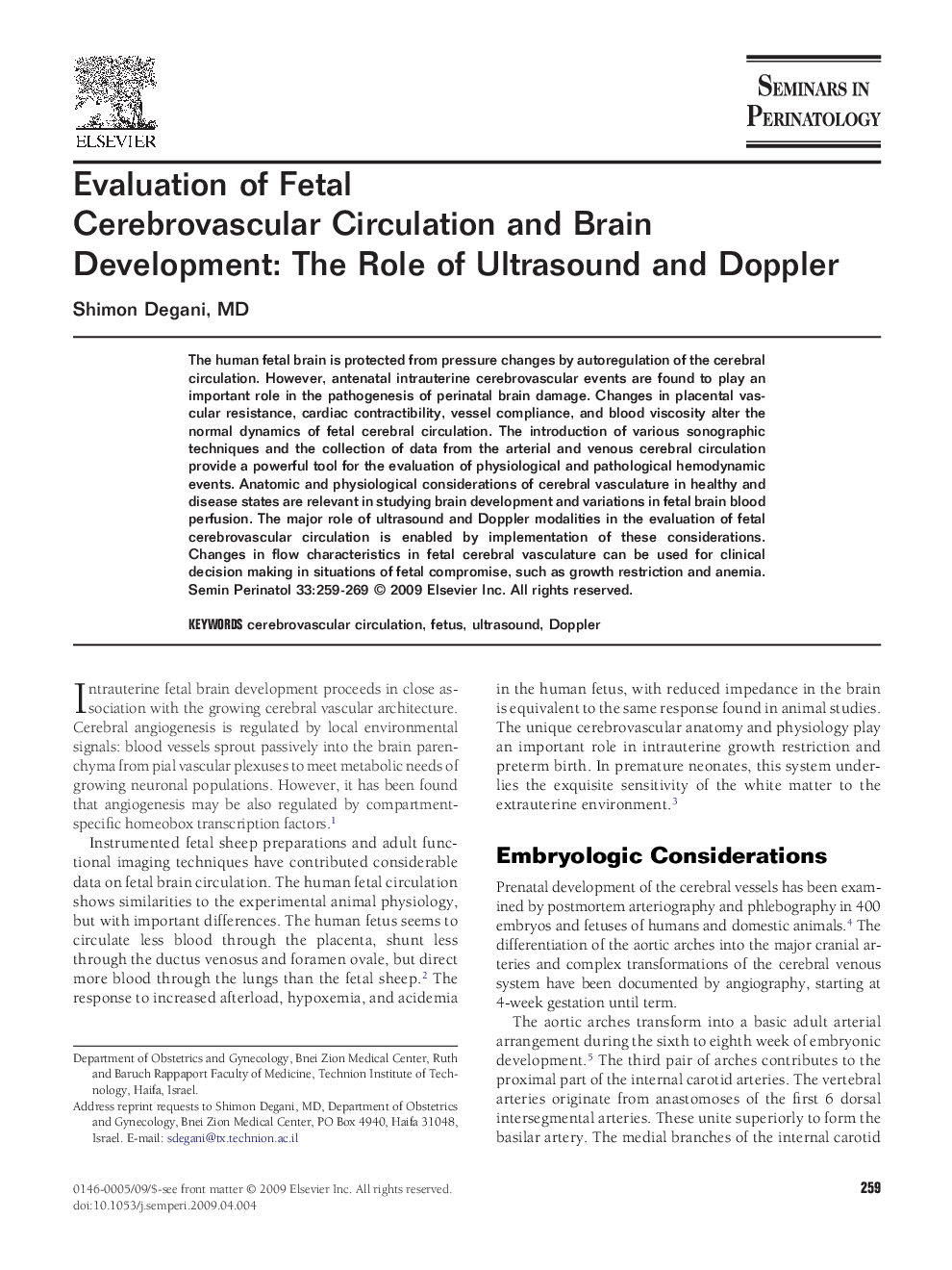| Article ID | Journal | Published Year | Pages | File Type |
|---|---|---|---|---|
| 3836620 | Seminars in Perinatology | 2009 | 11 Pages |
The human fetal brain is protected from pressure changes by autoregulation of the cerebral circulation. However, antenatal intrauterine cerebrovascular events are found to play an important role in the pathogenesis of perinatal brain damage. Changes in placental vascular resistance, cardiac contractibility, vessel compliance, and blood viscosity alter the normal dynamics of fetal cerebral circulation. The introduction of various sonographic techniques and the collection of data from the arterial and venous cerebral circulation provide a powerful tool for the evaluation of physiological and pathological hemodynamic events. Anatomic and physiological considerations of cerebral vasculature in healthy and disease states are relevant in studying brain development and variations in fetal brain blood perfusion. The major role of ultrasound and Doppler modalities in the evaluation of fetal cerebrovascular circulation is enabled by implementation of these considerations. Changes in flow characteristics in fetal cerebral vasculature can be used for clinical decision making in situations of fetal compromise, such as growth restriction and anemia.
